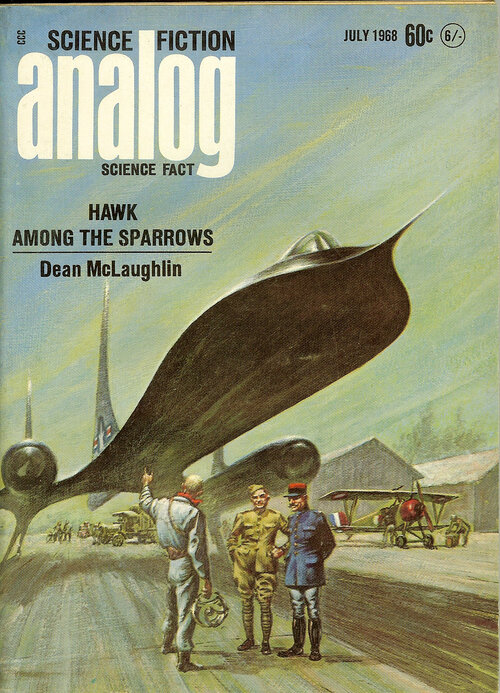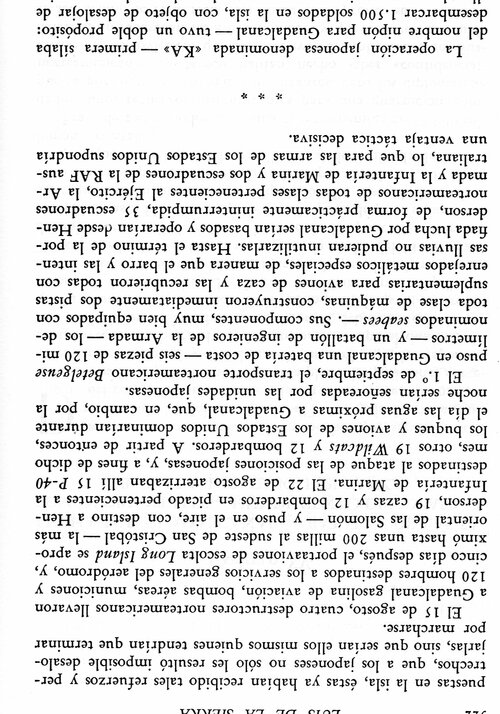Rhinocrates
ACCESS: Top Secret
- Joined
- 26 September 2006
- Messages
- 3,047
- Reaction score
- 7,759
My Presbyterian forebears are demanding that we all take cold showers.
(Much of this applies to the boom or Cambrian explosion in eVTOL as well, but crucially, those aren't so close to power - see below.)

 www.newstatesman.com
www.newstatesman.com
May be paywalled if you've passed your limit for the month.
...one study of two centuries of technological innovations found that they are accompanied by an investment bubble three times out of four.
The Nasdaq-100 – an index of 100 publicly traded companies which includes Apple, Intel, Nvidia, Microsoft, Alphabet and other Big Tech names – lost a trillion dollars in market value as investors looked at a new round of company reports and asked when exactly the world-changing AI revolution was going to show up as earnings. On 2 August, the investors moving their money out of the tech-heavy American stock market was “becoming a stampede”, Bloomberg News reported, as signs of a slowing US economy sent money flowing away from riskier investments.
In June, Goldman Sachs published a report in which it was argued that the “truly transformative changes” promised by the industry “won’t happen quickly and few – if any – will likely occur within the next 10 years”.
...among those who use generative AI for their work, the magic is increasingly wearing off. In a survey of 2,500 workers in the US, UK, Australia and Canada, published last week, 77 per cent said the generative AI tools they had been asked to use actually added to their workload; nearly half said they had no idea how to produce the productivity gains their employers expected from AI. In a Morgan Stanley investor note, one client, a large pharmaceutical company was reported to have dropped the AI tools it had licensed for 500 workers; an unnamed executive said the slides the software generated looked like “middle-school presentations”.
The leading company in the boom, ChatGPT maker OpenAI, could lose up to $5bn this year, according to a report by the Information.
Moore’s law, which held that computer chips would double in complexity every two years without getting much more expensive, was the principle that guided the dot-com boom: new computing power was arriving, pretty much for free, and it would change everything. But Moore’s law wasn’t a law; it had no logical or mathematical proof. It was a magazine column.
...incorporated so much more of the data needed to “train” the systems to generate new words, images and sounds. “We saw rapid progress,” explains Marcus, “as the industry raced from using a tenth of the internet, to a quarter of the internet to half of the internet, to almost everything that’s available. And now they’ve run out… these companies have essentially used the entire internet.”
“I don’t know if they [tech leaders] believe what they’re saying,” says Marcus, “but I think that they’ve convinced a lot of the public, and even some people in the field, that artificial general intelligence is imminent, that it’s going to change everything… they get power by suggesting that they are close to this magical thing. They get treated like saints, or kings, they take meetings with prime ministers.”
However:
“I don’t know if they [tech leaders] believe what they’re saying,” says Marcus, “but I think that they’ve convinced a lot of the public, and even some people in the field, that artificial general intelligence is imminent, that it’s going to change everything… they get power by suggesting that they are close to this magical thing. They get treated like saints, or kings, they take meetings with prime ministers.”
This is the most salient aspect – beyond what it might do to the average portfolio – of the popping of the AI bubble: that the billionaire class will simply not allow it to happen. Almost all of the wealth gained by the world’s richest people last year came from AI stocks. As a consumer you may question whether you really want large language models deciding the outcome of your job application, writing the TV programmes you watch or taking your customer service call, but the tech industry has no intention of allowing you to make any such choice. The bubble will not deflate without a fight.
(Much of this applies to the boom or Cambrian explosion in eVTOL as well, but crucially, those aren't so close to power - see below.)

When the AI bubble bursts
The boom in AI investment since ChatGPT’s launch has been accompanied by constant claims that the technology will transform our world. Will it?
May be paywalled if you've passed your limit for the month.
...one study of two centuries of technological innovations found that they are accompanied by an investment bubble three times out of four.
The Nasdaq-100 – an index of 100 publicly traded companies which includes Apple, Intel, Nvidia, Microsoft, Alphabet and other Big Tech names – lost a trillion dollars in market value as investors looked at a new round of company reports and asked when exactly the world-changing AI revolution was going to show up as earnings. On 2 August, the investors moving their money out of the tech-heavy American stock market was “becoming a stampede”, Bloomberg News reported, as signs of a slowing US economy sent money flowing away from riskier investments.
In June, Goldman Sachs published a report in which it was argued that the “truly transformative changes” promised by the industry “won’t happen quickly and few – if any – will likely occur within the next 10 years”.
...among those who use generative AI for their work, the magic is increasingly wearing off. In a survey of 2,500 workers in the US, UK, Australia and Canada, published last week, 77 per cent said the generative AI tools they had been asked to use actually added to their workload; nearly half said they had no idea how to produce the productivity gains their employers expected from AI. In a Morgan Stanley investor note, one client, a large pharmaceutical company was reported to have dropped the AI tools it had licensed for 500 workers; an unnamed executive said the slides the software generated looked like “middle-school presentations”.
The leading company in the boom, ChatGPT maker OpenAI, could lose up to $5bn this year, according to a report by the Information.
Moore’s law, which held that computer chips would double in complexity every two years without getting much more expensive, was the principle that guided the dot-com boom: new computing power was arriving, pretty much for free, and it would change everything. But Moore’s law wasn’t a law; it had no logical or mathematical proof. It was a magazine column.
...incorporated so much more of the data needed to “train” the systems to generate new words, images and sounds. “We saw rapid progress,” explains Marcus, “as the industry raced from using a tenth of the internet, to a quarter of the internet to half of the internet, to almost everything that’s available. And now they’ve run out… these companies have essentially used the entire internet.”
“I don’t know if they [tech leaders] believe what they’re saying,” says Marcus, “but I think that they’ve convinced a lot of the public, and even some people in the field, that artificial general intelligence is imminent, that it’s going to change everything… they get power by suggesting that they are close to this magical thing. They get treated like saints, or kings, they take meetings with prime ministers.”
However:
“I don’t know if they [tech leaders] believe what they’re saying,” says Marcus, “but I think that they’ve convinced a lot of the public, and even some people in the field, that artificial general intelligence is imminent, that it’s going to change everything… they get power by suggesting that they are close to this magical thing. They get treated like saints, or kings, they take meetings with prime ministers.”
This is the most salient aspect – beyond what it might do to the average portfolio – of the popping of the AI bubble: that the billionaire class will simply not allow it to happen. Almost all of the wealth gained by the world’s richest people last year came from AI stocks. As a consumer you may question whether you really want large language models deciding the outcome of your job application, writing the TV programmes you watch or taking your customer service call, but the tech industry has no intention of allowing you to make any such choice. The bubble will not deflate without a fight.



































